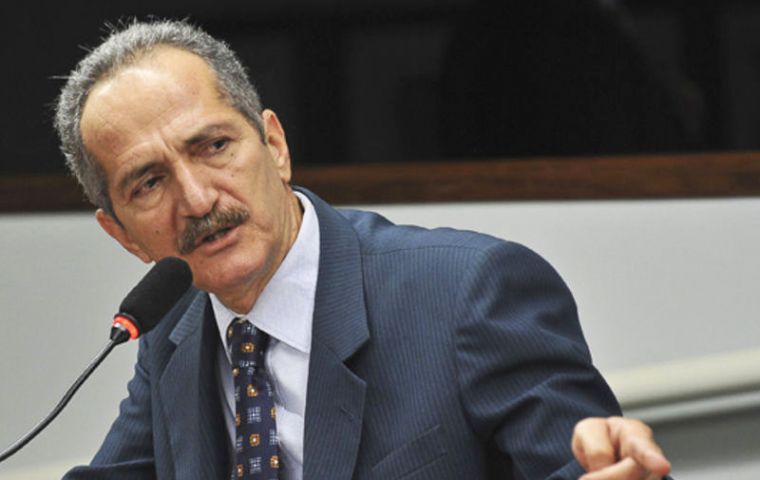MercoPress. South Atlantic News Agency
Brazil's Sports minister is not expecting protests during next year's World Cup
 “I think the World Cup will be protected by the will of the people to be supportive of a great event” anticipates Rebelo
“I think the World Cup will be protected by the will of the people to be supportive of a great event” anticipates Rebelo Brazil's sports minister Aldo Rebelo is not expecting waves of anti government protests during the World Cup next year arguing the Brazilian people will be more interested in celebrating the tournament than complaining about its cost.
Last June/July Brazil experienced serious street protests during the Confederations Cup when demonstrators used the 2014 World Cup warm up event to draw attention to a wide range of causes. Among their complaints was the amount of money spent on the World Cup while millions of Brazilians continue to struggle with awful urban transport systems, poor healthcare and education and rampant political corruption. "I don't believe we will see demonstrations during the World Cup," Rebelo said. "I think the World Cup will be protected by the will of the people to be supportive of a great event. The mood will be for partying, not for protesting, when the national teams and the tourists start arriving in Brazil." Rebelo's comments come in contrast to what most analysts foresee during soccer's showcase event next year, when all eyes will be on Brazil and about 600,000 visitors will be in the country. They also expect more protests during the 2016 Rio Olympics. About 1 million demonstrators took to the streets on a single night at the height of this year's protests across Brazil, which largely focused on corruption and woeful public services despite a heavy tax burden. FIFA General Secretary Jerome Valcke said recently he was satisfied with the police response during some of the protests that affected the six Confederations Cup host cities. The tournament went on as scheduled and none of the matches was disrupted. He said he expects the same kind of response if protests happen again next year. Valcke on Sunday had already dismissed concerns over the fan violence that has plagued the nation inside and outside stadiums in recent months, saying soccer is a "passion and you cannot control everything" in a huge country like Brazil. "These kinds of things will not happen at the World Cup because we will have the highest level of security you can imagine," he said. The minister, who is the government official in charge of Brazil's preparations for the World Cup and the 2016 Rio Olympics, downplayed a recent threat by the country's largest organized crime group that promised to launch the "World Cup of Terror" next year, with attacks against police similar to those that spread fear across the nation in 2006. "Our security system will not take any threat lightly, we will assess all possible risks," Rebelo said. "But in this case, it's a threat more against police, not against the public." He added: "I'm certain that the threats to the risk areas, such as airports and subway systems, will not be as significant in Brazil as they are during events happening in Europe or in the United States".




Top Comments
Disclaimer & comment rules-

-

-

Read all commentsAhh
Oct 29th, 2013 - 08:16 pm 0Optimistic
Theirs always one..
lolol
He determined this from a crystal ball or the Fortune teller at the end of his street?
Oct 30th, 2013 - 12:35 am 0@1 You mean “There's always one..”
Oct 30th, 2013 - 10:47 am 0Having said that, I agree with the sentiment. As time goes on, the people will see more and more money spent on this event. Because, if things are as reported, the venues aren't ready and Brazil needs more airfield capacity. Or is the Brazilian government going to find the money to put all the things that people are complaining about right in time? Somehow I think that telling the Congress to drop everything else and concentrate on “internet” issues may be a mistake.
Commenting for this story is now closed.
If you have a Facebook account, become a fan and comment on our Facebook Page!